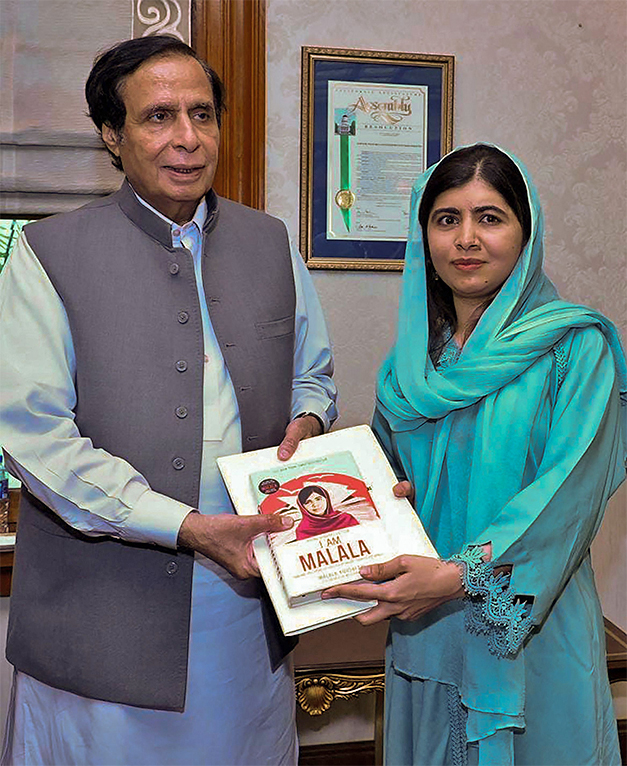ISLAMABAD: The Chief Minister of Punjab, Chaudhry Parvez Elahi, said on Thursday on the request of Nobel Laureate Malala Yousafzai, the government in his province would introduce a law to ban corporal punishment in schools and seminaries across the province.
Corporal punishment is a widely accepted means of maintaining discipline in Pakistani schools and religious institutions but rights advocates have called for its banning in recent years.
A law passed in February 2021 banning corporal punishment only applied to schools and seminaries in the Pakistani capital of Islamabad and came amid a number of high-profile cases of schoolchildren being badly beaten and even killed in schools, religious institutions and workplaces.
In January 2021, an eight-year-old boy was beaten to death by his teacher for not memorizing a lesson at a religious school in Punjab. In June 2020, another eight-year-old, a girl working as a maid in Islamabad, was beaten to death by her employers for letting their pet parrots escape.
“On Malala’s request, a law will be brought to ban corporal punishment in schools and madrassas,” Elahi tweeted on Thursday, a day after he met the education advocate in Lahore.
“Giving corporal punishment to students, especially female students in madrassas and schools is absolutely not acceptable. The implementation of the law prohibiting corporal punishment will be ensured in all cases and this law will be approved by the Punjab Assembly this month.”
The chief minister also announced that 25,000 teachers would be recruited across primary schools in Punjab and the mother tongue would be used as the medium of instruction to increase the rate of literacy rate.

This handout picture taken and released by the Chief Minister House Office of Pakistan's Punjab Province on December 14, 2022, shows Nobel Peace laureate Malala Yousafzai (R) presenting her book to Chief Minister of Punjab province Chaudhry Pervez Elahi (L) in Lahore. (AFP/Chief Minister House Office of Pakistan’s Punjab Province)
This is Malala’s second visit to Pakistan this year. She was earlier in Pakistan in October 2022 to mark the 10th anniversary of being shot in her hometown of Swat by a Taliban gunman for her advocacy for girls’ education.
During the trip, she visited flood-affected areas of the country to help keep international attention focused on the disaster and reinforce the need for critical humanitarian aid.












